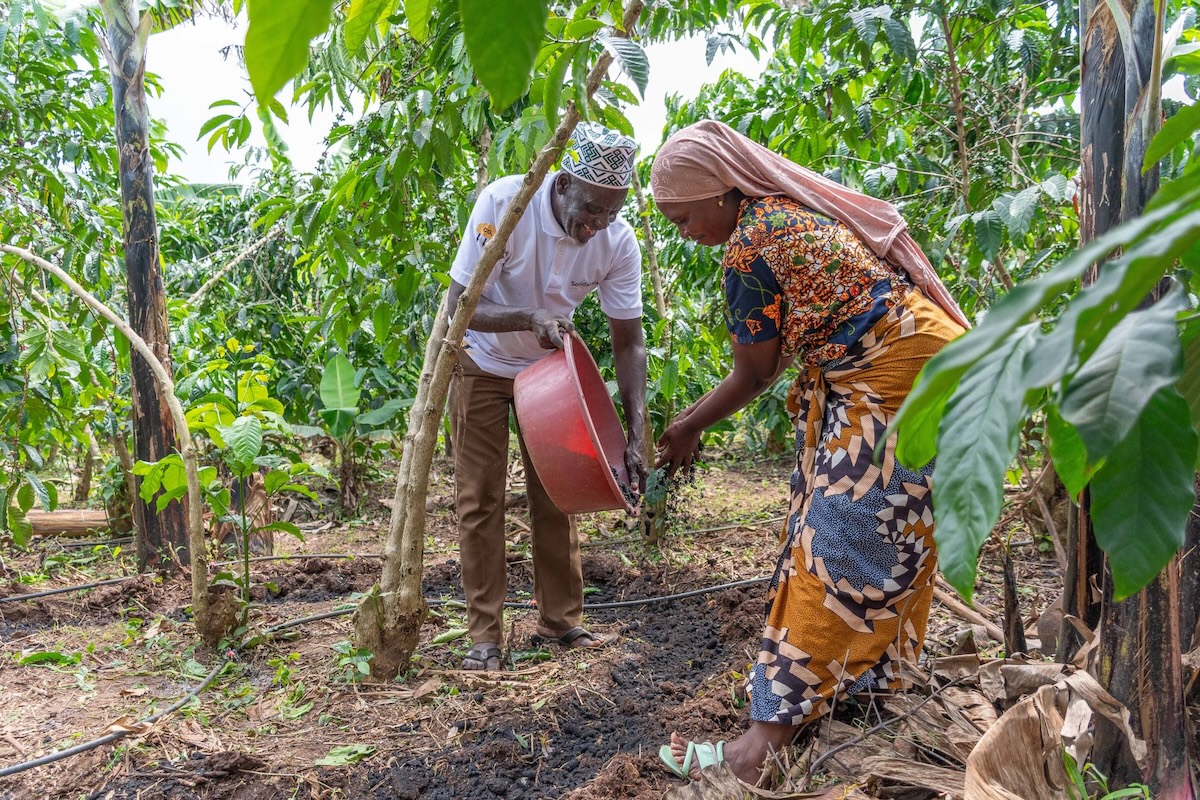Biochar is an attractive cost-effective solution for small-scale farmers seeking ways to adapt to climate change while maintaining productivity on their farms. Solidaridad currently has biochar programmes and partnerships in Ghana, Zambia, Tanzania, Uganda, Nicaragua, India and Ethiopia.
What is biochar & what is it made of?
Though it looks similar to charcoal, biochar is produced differently and has distinctly valuable properties that go far beyond the backyard grill. Biochar is a carbon-rich material produced by heating organic biomass, such as agricultural waste, in an oxygen-limited environment through a process called pyrolysis. This creates a stable carbon structure that sequesters carbon over the long-term (100+ years). When properly used on agricultural land, it can also improve soil fertility, enhance water retention, and contribute to climate change adaptation and mitigation and sustainable agriculture.
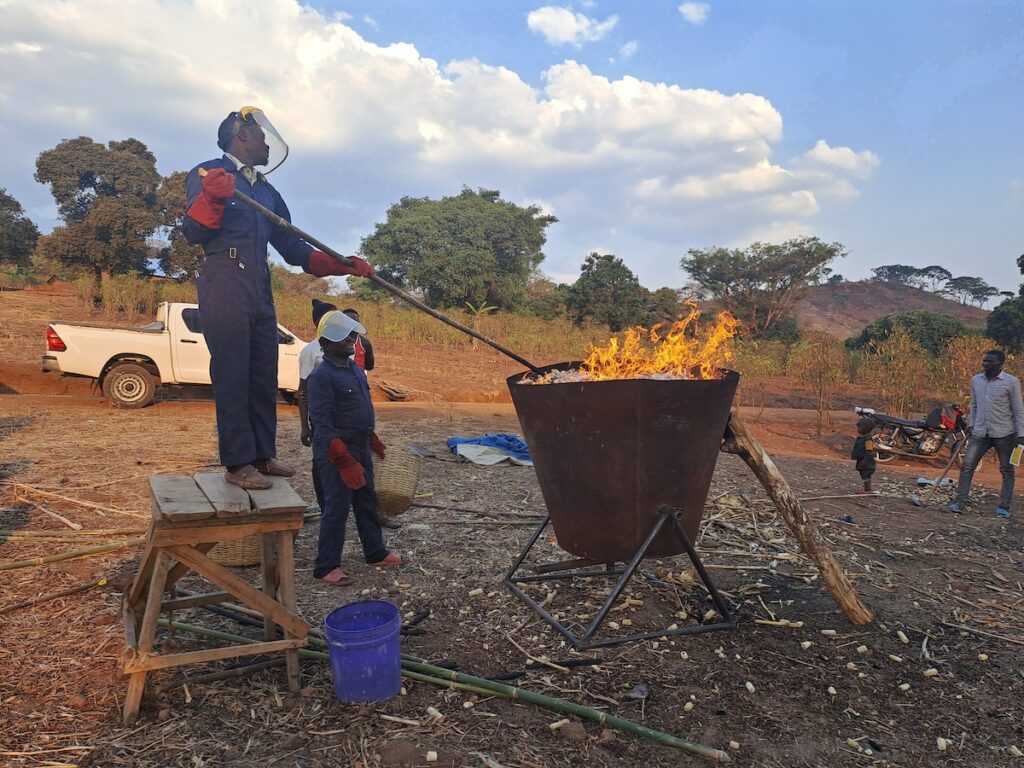
Biochar is best known for its conventional uses—enhancing soil fertility, removing carbon dioxide from the atmosphere, and improving crop yields. But it also provides unexpected benefits that create value from waste, and support local entrepreneurship.
Dive into some of the ways that biochar can transform the planet:
1. The Carbon Bank: Biochar as soil’s savings account
Biochar is an exceptionally powerful tool for removing carbon dioxide from the atmosphere because it can lock away carbon in the soil for centuries. Unlike organic matter that decomposes quickly, biochar’s stable structure prevents the carbon from returning to the atmosphere as CO2, effectively removing it from the carbon cycle for the long term. Biochar is an effective method for mitigating climate change with the potential to store roughly 2.68 tCO2e per tonne.
In Zambia and Tanzania, Solidaridad has partnered with Planboo, a company that helps farmers produce biochar, generate carbon credits and market them on the carbon markets. While biochar’s greatest value comes from its potential to enhance soil health and fertility, its role in carbon dioxide removal is a critical part of its appeal.
“Through our partnership with Planboo, Kvuno and the Cotton Development Trust in Zambia, we’re equipping smallholder farmers with practical skills to unlock biochar’s potential. Together, we’re building a future where biochar benefits both farmers’ livelihoods and the environment.”
Shungu Kanyemba, Managing Director, Solidaridad Southern Africa
This partnership in Zambia has launched with 120 smallholder farmers who are learning how to produce biochar, proper application of the soil amendment on their farms, its contributions to carbon sequestration, and the value of carbon stocks that can result from it.
2. Turning waste into ‘gold’: Biochar as a compost booster
Farms generate significant waste during harvest. This can include corn cobs and stalks, coffee husks and pulp, rice husks, sugarcane bagasse, wood chippings, and prunings from fruit trees. This biomass is a perfect feedstock for producing biochar.
Though the post-harvest biomass is often seen as waste, it can be a critical input for the next production cycle. A portion of this ‘waste’ can be used to produce a rich compost that feeds soils, and some can be used to produce biochar that can support the composting process. The unique structure of biochar accelerates the composting process by improving soil aeration and soil-moisture retention, and enhancing the microbial activity.
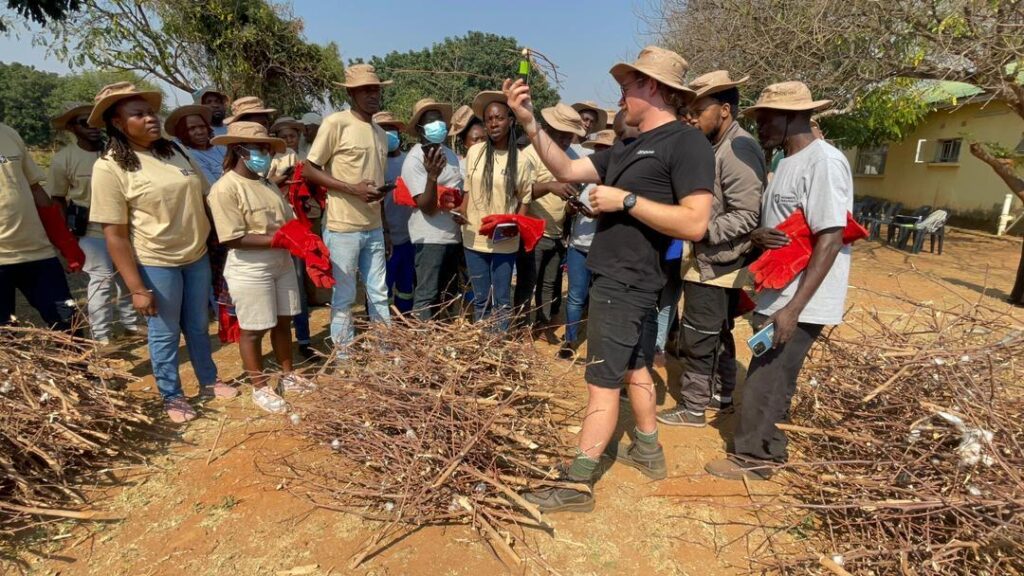
3. Fireproofing farms: Biochar helps prevent forest fires
Forest litter and farm waste can contribute to the rapid spread of forest fires in a changing climate. It’s estimated that key crops in Eastern Africa generate around 130 million tonnes of agricultural residues per year, of which around 30-60 million tonnes is currently not utilized. The easiest and cheapest way to remove crop residues is simply by burning it. This practice is widely used across countries in Eastern Africa. Unfortunately, the open-air burning of woody residues can contribute to further GHG emissions and set off destructive wildfires.
A better option would be to use it to create biochar that can be applied to the soil. The pyrolysis process reduces the amount of carbon dioxide and methane pumped into the atmosphere and the resulting biochar stores carbon in a more stable way (and provides all of the benefits mentioned above). Carbon-rich soils also do a better job of retaining moisture, which helps farmers better weather droughts and floods and reduce the spread of fire.
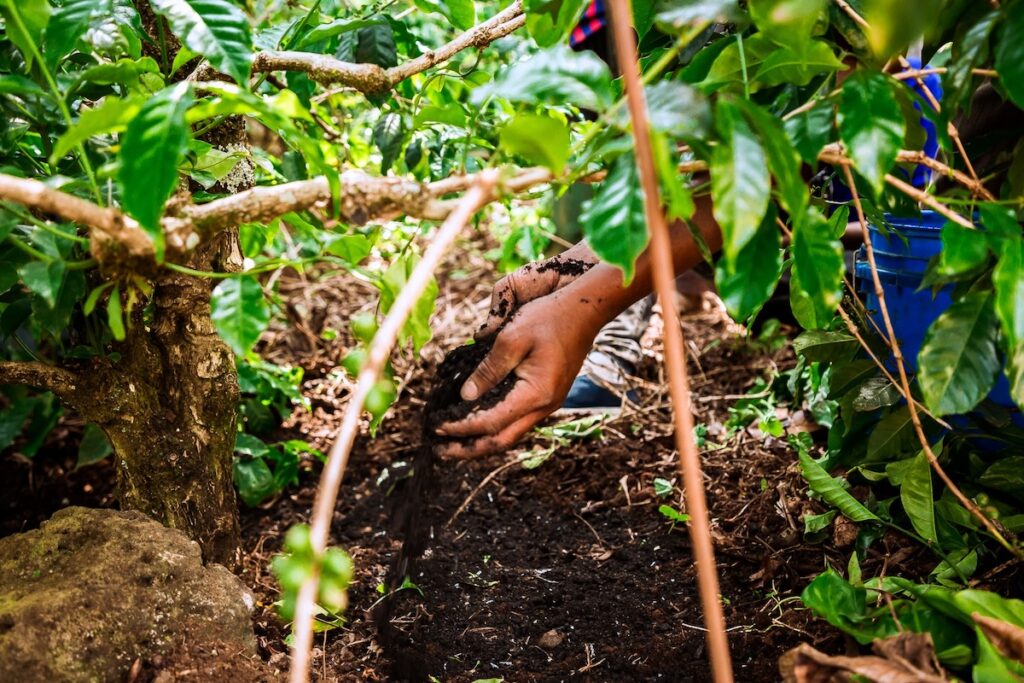
4. Eco-Concrete: Building Sustainable Infrastructure with Biochar
In addition to improving soil quality, biochar can also be used in the construction industry – particularly as a component of environmentally friendly concrete. The production of conventional cement is associated with high CO₂ emissions. It’s estimated that the production of cement and concrete represents roughly 6-8 percent of the world’s CO2 emissions. Biochar can be a game changer.
When biochar is mixed into cement, the CO₂ footprint is reduced, and it improves the strength and durability of the resulting concrete. It can also help to regulate moisture and optimize thermal insulation. This represents an opportunity to utilize agricultural waste sensibly, store carbon for the long-term, and simultaneously create sustainable building materials for the future.
5. Economic Benefits of for farmers: Biochar can increase income in farming communities
Beyond all of these benefits, biochar can lead to higher incomes by helping farmers improve production and reduce input costs.
“In cotton, farmers have seen enhanced profitability through better water retention that contributes to better productivity and quality. Simultaneously, it reduces the need for chemical fertilizer and lowers irrigation costs. Over time this boosts the economic returns per hectare making cotton farming more resilient and cost effective, especially in regions facing soil degradation and water scarcity.”
Humphrey Nxumalo, Regional Head of Programmes Southern Africa
The production of biochar also represents an entrepreneurial opportunity for farmers, women and young people in farming communities. Its unique properties and numerous uses can generate additional income from waste, whether it’s selling sequestered carbon on carbon markets, training other farmers in biochar production and its application, or developing microenterprises to provide products and services.
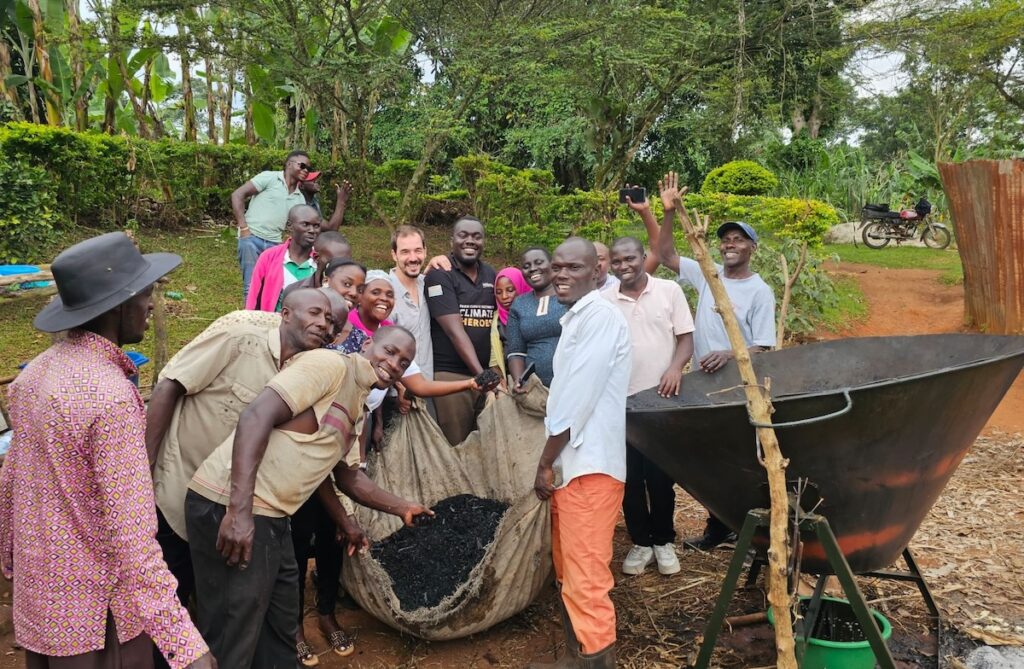
Building farmers’ capacity to benefit from biochar
The surprising benefits of biochar showcase its potential to repurpose farm waste, improve soil health and income, and mitigate the impacts of a changing climate. Across Solidaridad’s biochar partnerships and projects, we are advancing sustainable practices, fostering supportive ecosystems, and enabling policies that empower communities.
Solidaridad is currently working with partners and farmers to implement biochar initiatives in various commodity supply chains in seven countries:
- Cotton in Zambia
- Coffee in Tanzania
- Palm oil, coffee and tea in Uganda
- Cotton in Ethiopia
- Coffee in Nicaragua
- Cotton in India
- Cocoa in Ghana
For more information on Solidaridad’s work in biochar and how to build a partnership, visit our Partnerships page.

